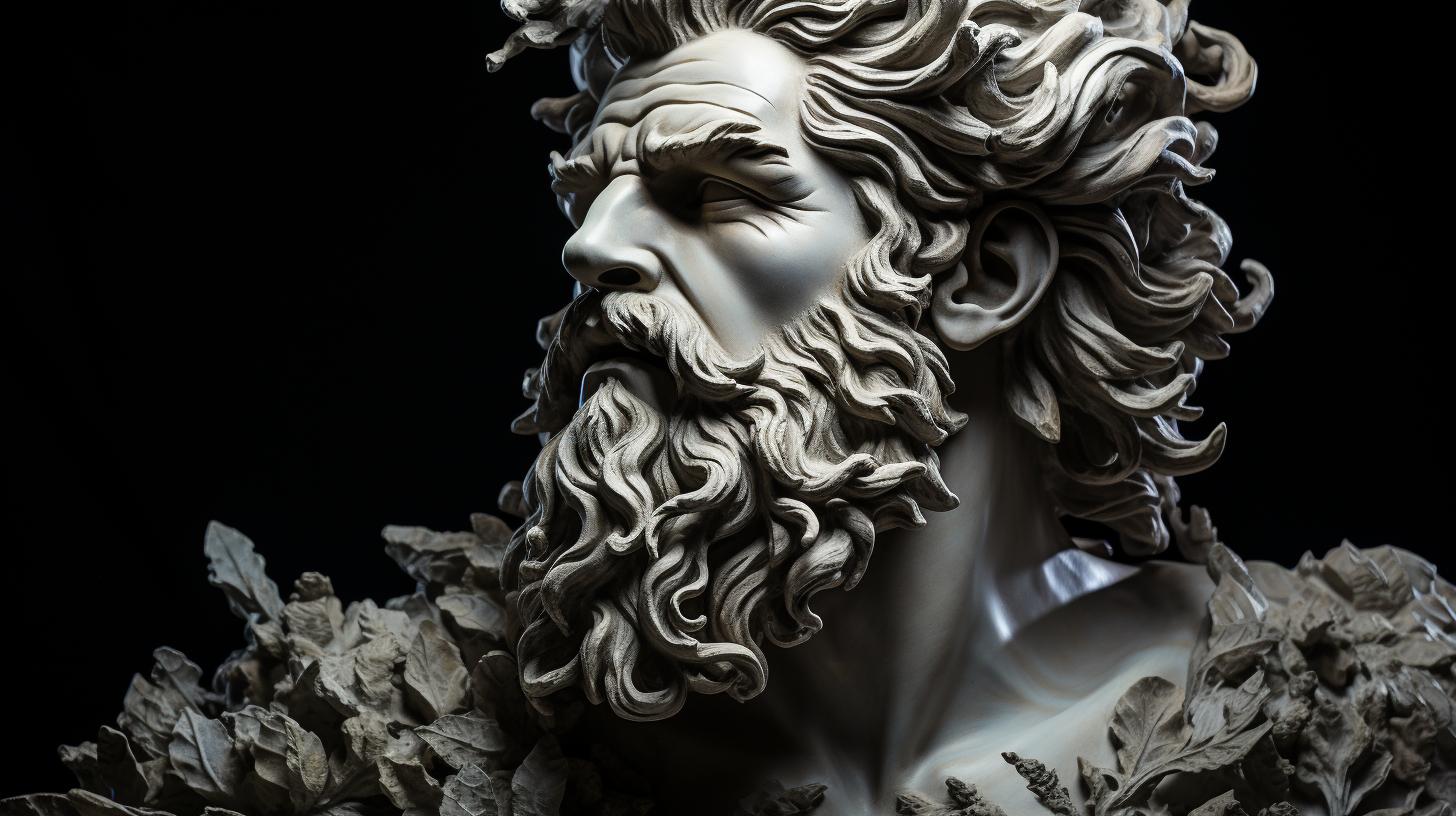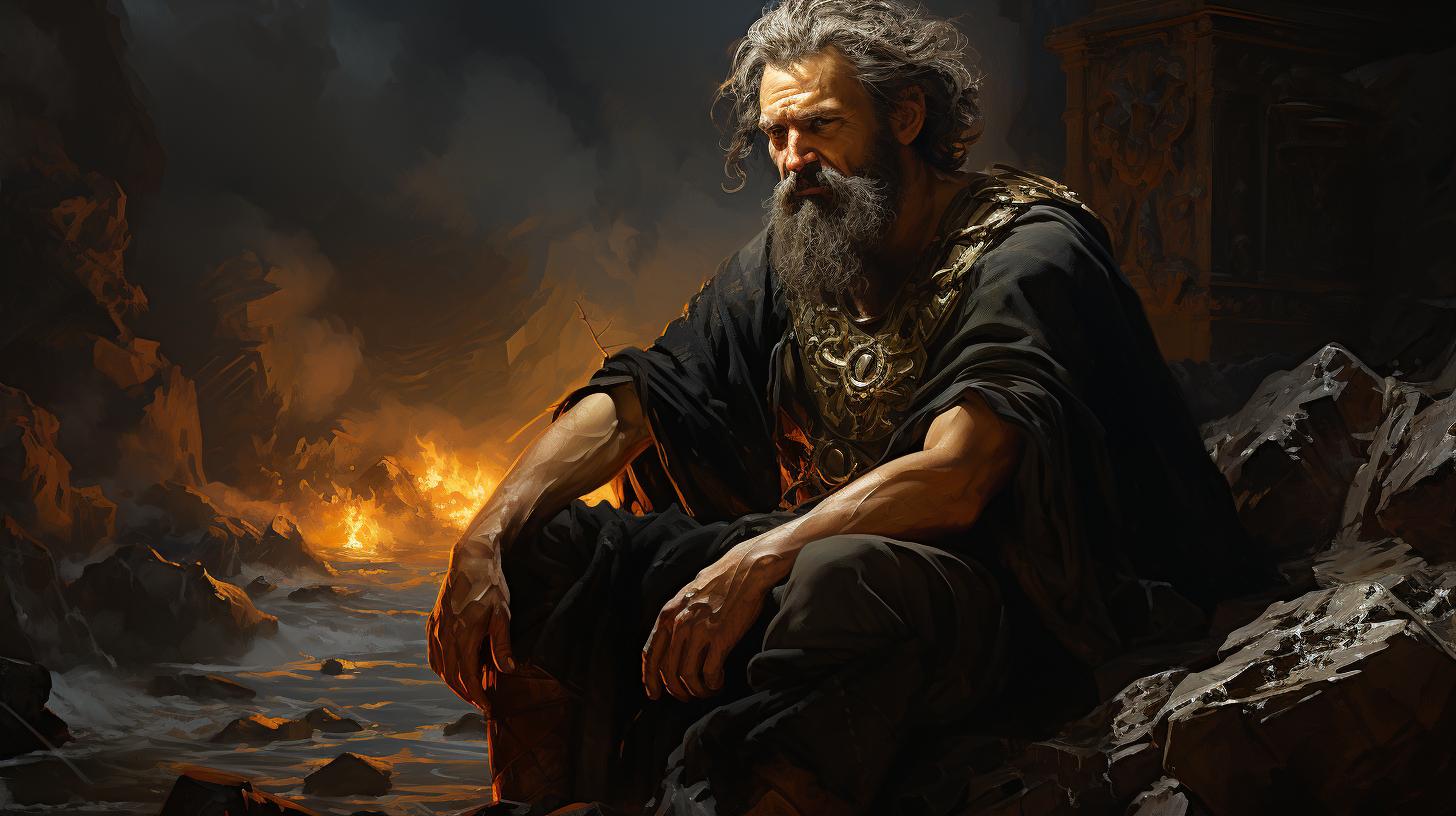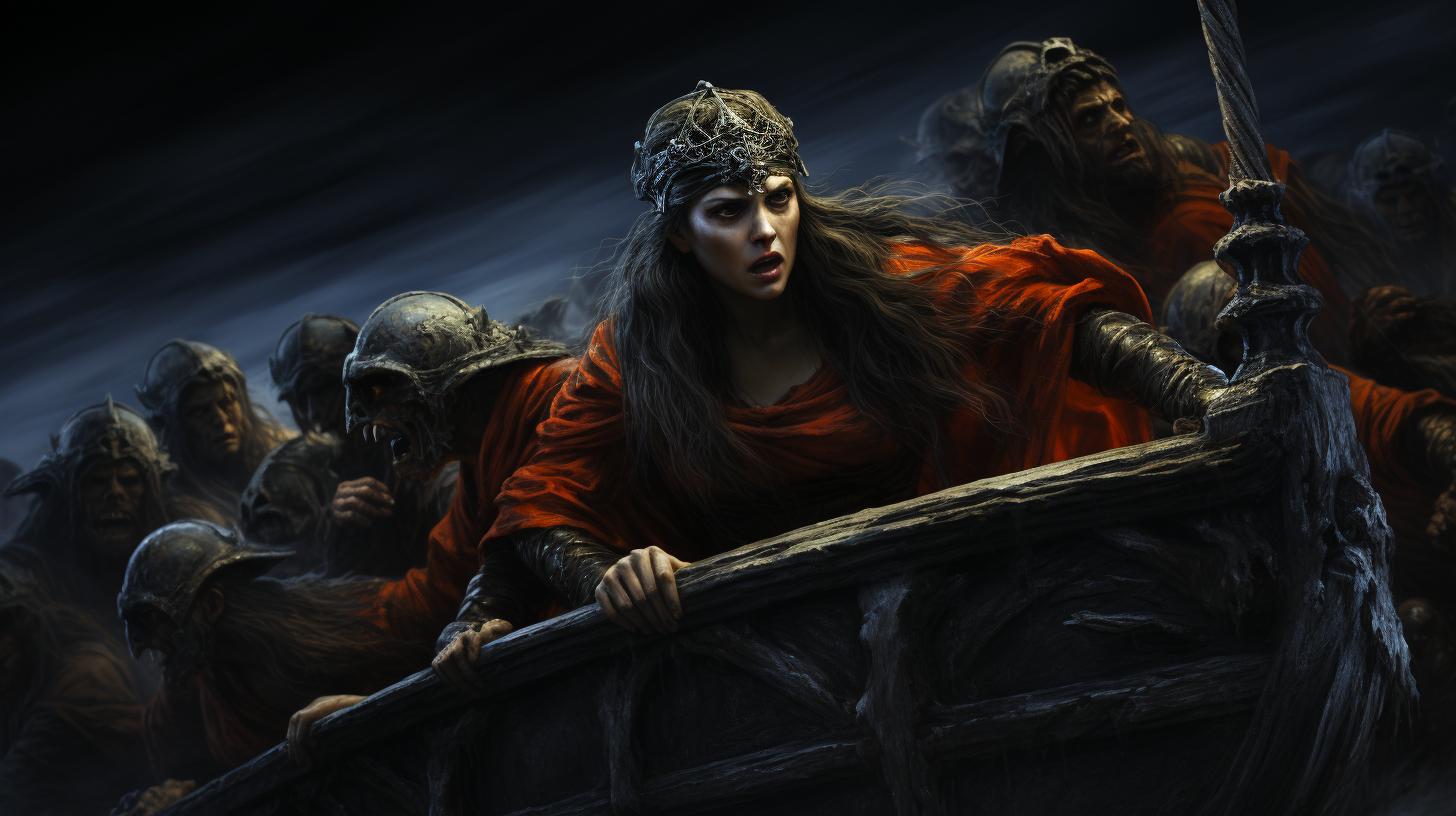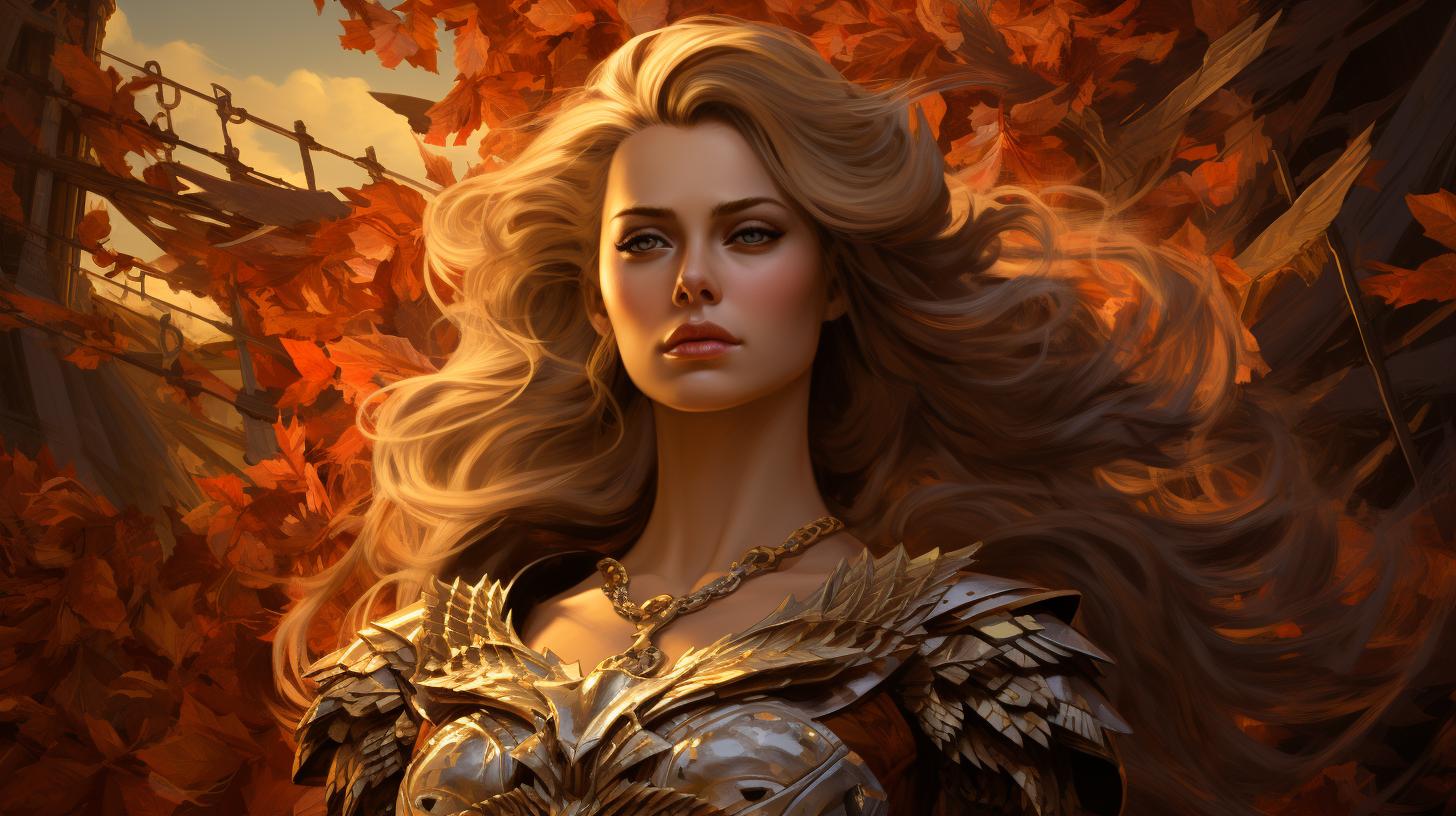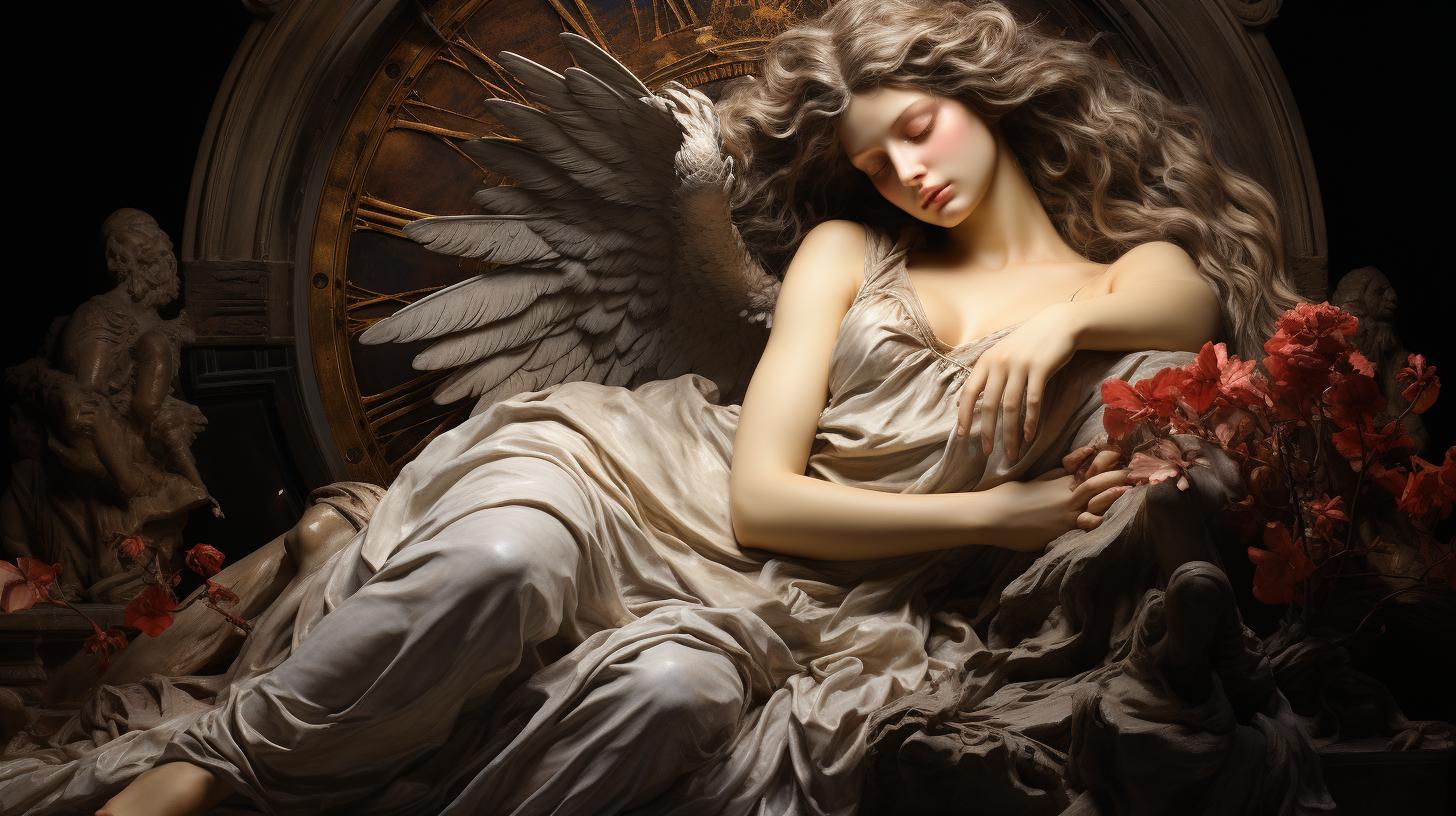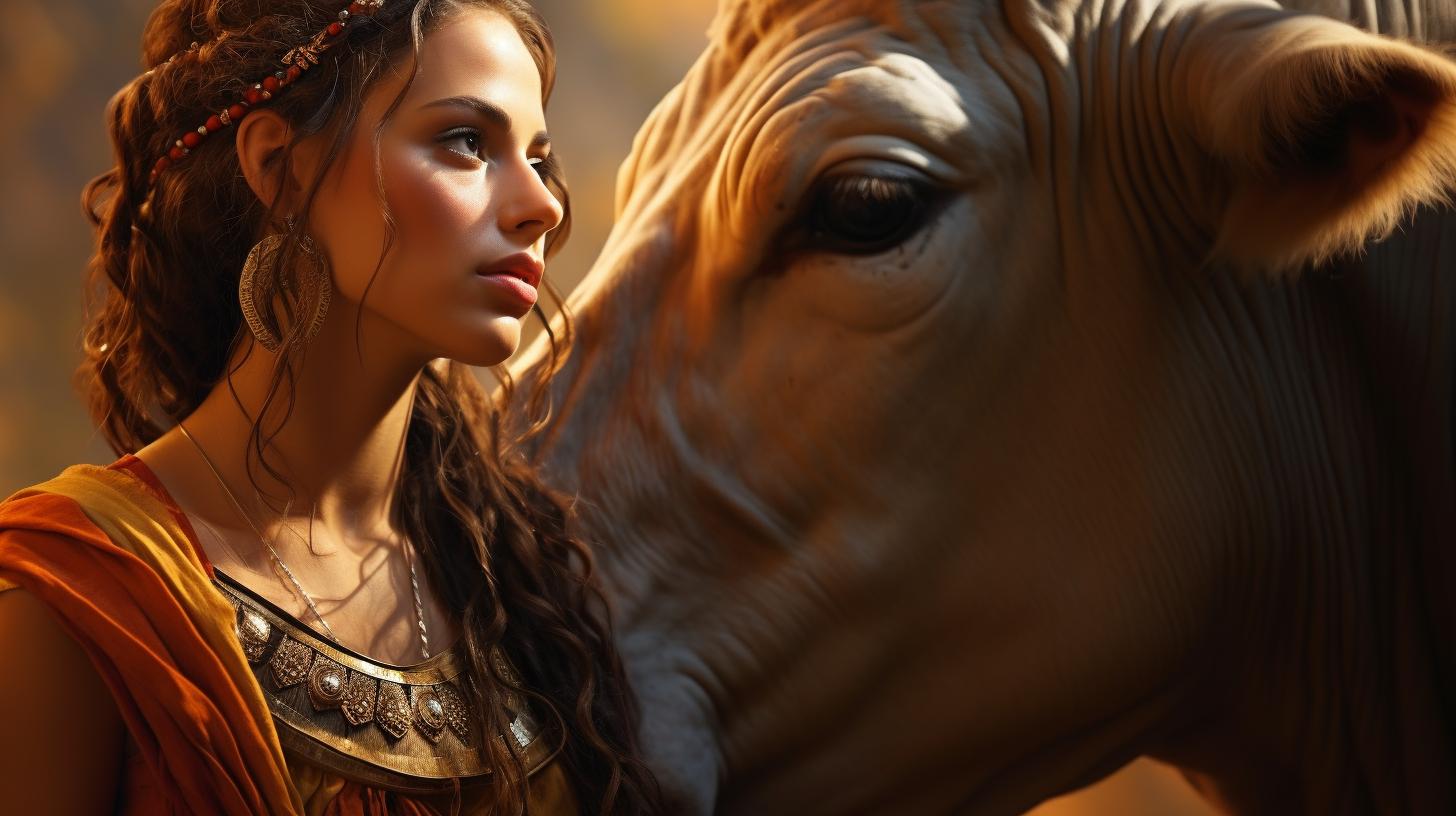Mysterious Insights into Momus: Unveiling the Fascinating World of Greek Mythology
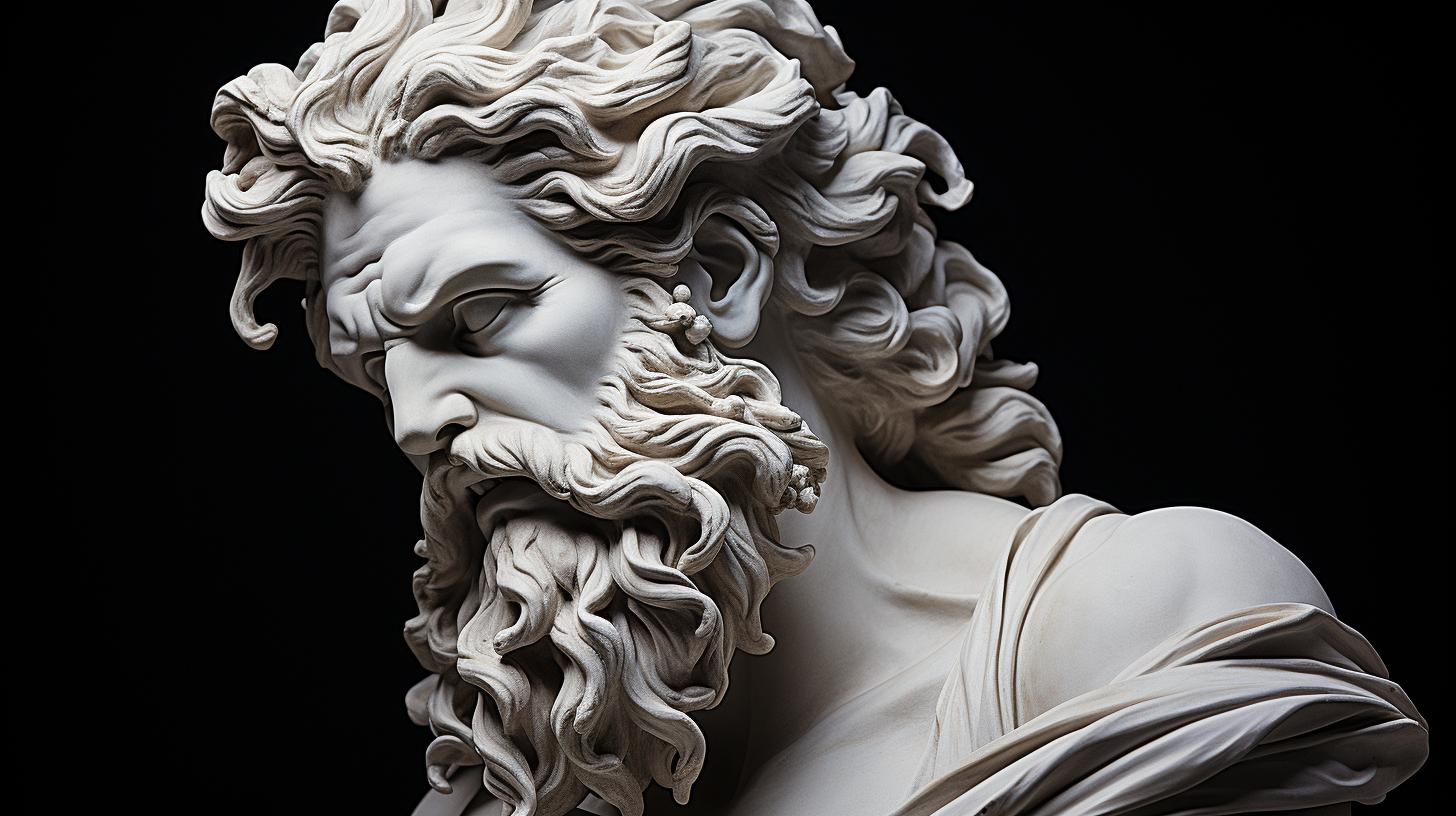
Momus, a fascinating figure in Greek mythology, was the god of satire and criticism. Known for his sharp wit, Momus was not afraid to ridicule even the most powerful gods, including Zeus himself.
His critiques often highlighted the flaws and imperfections in the creations of the divine beings. This article explores the origins of Momus, his conflicts with the Olympian gods, his involvement in the Trojan War, and his evolving portrayal in art and literature.
Additionally, comparisons are drawn between Momus and the Roman deity of humor.
The Origins and Family of Momus
The origins of Momus, the god of satire and criticism in Greek mythology, can be traced back to his parentage and family. Let’s explore his intriguing lineage and relationships with other deities.
Parentage and Siblings of Momus
Momus was the son of Nyx, the primordial goddess of night. Nyx conceived him without a father, making him a unique figure in Greek mythology. Momus had a twin sister named Oizys, the goddess of misery and depression.
Together, they formed a contrasting duo, with Momus embodying sharp wit and Oizys representing anguish.
Relationship with Nyx and Oizys
Momus maintained a complex bond with his mother Nyx and twin sister Oizys. While Nyx played a significant role as a primeval deity, associated with darkness and mystery, Momus drew influence from her domain.
His connection with Oizys, on the other hand, showcased the interplay between criticism and suffering. Together, this family dynamic added depth and complexity to Momus’ character.
Momus: The God of Satire and Criticism
Momus, a fascinating and complex character in Greek mythology, holds the title of the god of satire and criticism.
This section explores Momus’s abilities and traits, as well as provides examples of his satirical critiques.
Momus’s Abilities and Traits
As the god of satire and criticism, Momus possessed a sharp wit and keen observation skills. Known for his ability to find faults and flaws in even the most remarkable creations, he fearlessly criticized both gods and mortals alike.
Momus’s sarcasm and cleverness were unparalleled, making him a skilled satirist.
Furthermore, Momus had a unique talent for pointing out the contradictions within society, highlighting its imperfections with his sharp tongue.
He would target the actions and behaviors of others, exposing their weaknesses and foolishness through humor and ridicule.
Examples of Momus’s Satirical Critiques
Prominent among the tales showcasing Momus’s satirical nature is his evaluation of Zeus, Athena, and Poseidon’s creations. While the gods’ handiwork was generally commendable, Momus always managed to find a flaw to mock.
He criticized humans for lacking a window in their hearts to reveal their thoughts, houses for not having wheels to escape bothersome neighbors, and even bulls for lacking eyes on their horns to guide their charge.
These examples demonstrate Momus’s ability to pinpoint even the smallest imperfections and subject them to biting ridicule. His scathing critiques were meant to challenge the status quo and encourage introspection, provoking laughter and self-reflection among both gods and mortals alike.
Momus’s satirical approach brought a unique perspective to Greek mythology, serving as a reminder that even the divine can be subject to scrutiny. His wit and critique continue to resonate in popular culture, shaping the perception of satire and criticism in modern society.
Momus’s Conflicts with Zeus and the Olympian Gods
Momus, known for his sharp tongue and penchant for criticism, was not one to hold back even when it came to ridiculing Zeus, the mighty king of the gods.
Let’s delve into the conflicts and exchanges between Momus and the Olympian gods, particularly focusing on his ridicule and criticism of Zeus.
Momus’s Ridicule and Criticism of Zeus
Momus was fearless in his stance against Zeus and didn’t shy away from pointing out the flaws and vices of the powerful god. His sharp wit and satirical commentary were on full display as he took aim at Zeus’s violent tendencies and lustful nature.
Momus not only ridiculed Zeus but also questioned the ethical implications of his actions, often provoking the ire of the Olympian pantheon.
Exile from Mount Olympus
As expected, Zeus was less than amused by Momus’s relentless mockery and questioning of his authority. The infuriated Zeus decided to take action and cast Momus into exile from the sacred grounds of Mount Olympus.
Banished from the company of the other gods, Momus found himself outcast and separated from the divine realm he once called home.
During his exile, Momus continued to commentate and criticize from the mortal realm, his voice resonating through the ages as a reminder of his audacity to challenge the mighty Zeus and the consequences he faced as a result.
Momus and the Trojan War
While known for his satirical critiques, Momus also played a significant role in the dramatic events of the Trojan War. His involvement in inciting the war stemmed from his desire to reduce the population of humans, and he used his cunning wit to sow discord and provoke conflict among the gods and mortals.
Momus’s Involvement in Inciting the Trojan War
Momus strategically exploited the strained relationships among the gods and took advantage of their vulnerabilities and personal grudges. He whispered malicious suggestions into their ears, sowing seeds of doubt and resentment.
The seeds he planted eventually led to the triggering of the infamous Trojan War. Momus used his gift of satire and criticism to manipulate the emotions and decisions of the divine beings, further intensifying their animosity and setting the stage for the ensuing conflict.
His razor-sharp wit and ability to pinpoint the flaws and weaknesses of the Olympian gods were key elements in inciting the war. By fueling the flames of discontent, Momus skillfully provoked Zeus and the divine pantheon, pushing them towards belligerent actions that would ultimately lead to the destruction of Troy.
Momus’s Role in Shaping the War’s Outcome
As the war raged on, Momus continued to weave his influence in the shadows, further impacting the course and outcome of the conflict. His critiques and witticisms targeted not only the gods but also the mortal warriors on both sides.
Momus thrived on exposing the weaknesses and imperfections of both mortals and immortals, exploiting their flaws to prolong the destructive nature of the war.
Momus’s relentless criticism and mockery fueled the egos and ambitions of the warriors, often manipulating their actions and decisions for his own amusement.
The war became a stage for his satirical performances, setting traps and creating situations that increased the casualties and devastation on each side.
While not a direct combatant in the war, Momus’s presence loomed over the conflict, leaving a lasting impact on its final outcome.
His influence perpetuated the cycle of violence and destruction, further emphasizing the tragic nature of the Trojan War.
Momus’s Evolution in Art, Literature, and Popular Culture
In the realm of art, literature, and popular culture, the figure of Momus has undergone significant evolution and reinterpretation over the years. This section explores two noteworthy aspects of Momus’s influence: his portrayal as a comic figure in Renaissance art and his impact on satirical and humorous works.
Recasting Momus as a Comic Figure in Renaissance Art
During the Renaissance, artists found inspiration in Greek mythology and began to depict Momus as a comic figure, emphasizing his role as the god of satire and mockery. Paintings and sculptures often portrayed him as a mischievous and jester-like character, using comedic gestures and expressions to convey his satirical nature.
This reinterpretation of Momus allowed artists to explore the power of satire and criticism in a lighthearted manner.
Momus’s Influence on Satirical and Humorous Works
Within the realm of literature and popular culture, Momus has served as a significant inspiration for satirical and humorous works. Authors, playwrights, and comedians have utilized Momus’s character to critique societal norms, authority figures, and human follies.
His sharp wit and ability to point out flaws have been harnessed as a tool for social commentary and entertainment. From satirical novels to comedic sketches, Momus’s influence continues to shape and inspire creative works that challenge established norms and bring laughter to audiences.
Comparisons with Roman Deity of Humor
Momus, the Greek god of satire and criticism, shares some similarities and differences with the Roman deity of humor. Here we explore their characteristics and the impact Momus has had on Roman mythology.
Similarities and Differences between Momus and Roman God of Humor
While Momus and the Roman god of humor share common traits related to their domains of satire and comedy, there are notable distinctions in their nature and representations. Momus, known for his sharp wit and biting sarcasm, often used his critiques as a way to challenge authority and highlight flaws in both gods and mortals.
On the other hand, the Roman god of humor embodied a lighter and more playful aspect of comedy, focusing on laughter and entertainment rather than sharp criticism.
Furthermore, Momus was typically depicted as a satirical figure, often portrayed as a jester or a fool in art and literature, while the Roman god of humor took on various forms, including masks and theatrical characters.
Despite these differences, both deities played significant roles in amusing and entertaining others, albeit through different approaches and tones.
Impact and Influence on Roman Mythology
The introduction of Momus into Roman mythology had a notable impact on the comedic and satirical elements of their pantheon. As his representation evolved over time, Roman writers and artists embraced his satirical persona, incorporating comic relief and witty social commentary into their works.
Momus’s presence influenced the development of comedic theater, where his spirit of critique and mockery found expression.
Moreover, Momus’s role as a critic and satirist inspired Roman thinkers to question and challenge societal norms, fostering a culture of free expression and intellectual dissent.
His influence on Roman mythology can be seen in various literary texts and artistic creations, leaving a lasting legacy in the realm of humor and satire.
- Momus’s critiques offered a valuable perspective to Roman society, encouraging self-reflection and growth.
- Through his humorous and satirical nature, Momus provided a means to challenge power structures and promote social change.
- His presence in Roman mythology helped shape the comedic arts, influencing the development of theater and comedy genres.
- Momus’s legacy continues to inspire modern satirists and comedians, showcasing the enduring impact of his critical spirit.
In conclusion, the comparisons between Momus and the Roman deity of humor shed light on their distinct characteristics and contributions to mythology.
Momus’s sharp satirical wit and biting critique contrast with the Roman god’s lighter and more entertaining approach. Their presence influenced Roman society, fostering intellectual dissent and leaving a significant mark on comedic arts.
The enduring legacy of Momus in humor and satire continues to inspire and challenge conventions.
.

